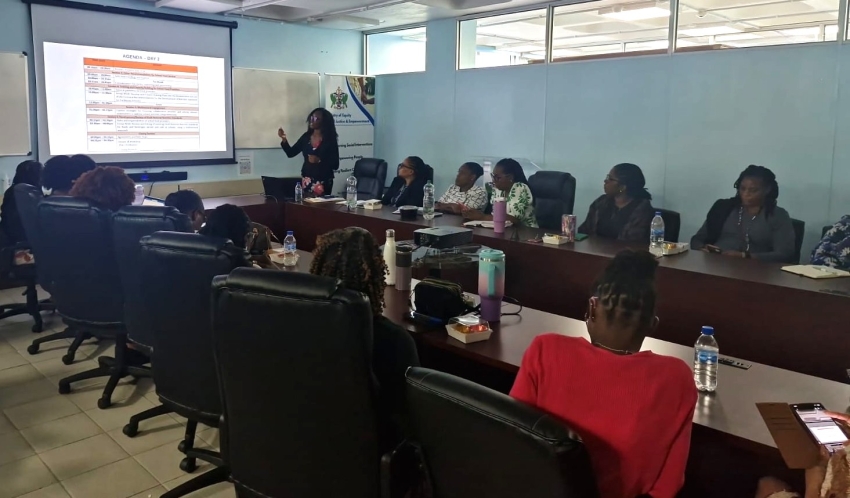The workshop brought together key stakeholders involved in school feeding programmes and early childhood nutrition, all with a unified goal of strengthening national nutrition standards for foods provided or sold within schools and early childhood care settings. The sessions were led by a Caribbean Public Health Agency (CARPHA) technical expert who provided guidance, practical tools, and model policies adopted across the Caribbean to help countries protect and enhance children’s nutrition.
Chief Nutritionist Lisa Hunt noted that although Saint Lucia already has a draft of its school nutrition guidelines, the Ministry intended to reinforce and update the document using CARPHA’s recommendations, turning it into a set of clearly defined national standards. She also outlined the challenges driving the need for stronger standards, explaining the rising nutritional risks facing children and the importance of healthier school meals. “We have recognized that, you know, childhood obesity is on the rise and also children are not consuming the fruits and vegetables that they require so they're not having a balanced diet and so they are at risk for health problems, especially our non-communicable diseases. So for this reason, we want to ensure that the meals that they get at the schools, whether it's around the school, whether it's at the canteen, that it is healthy and it will support the growth of the children. We want people to recognize that the meals that are served at the schools also help with academic performance and so it is not only for health but the whole well-being of the child, ensuring that they reach their full potential.”
Abigail Kaleb, Senior Technical Officer for Food Security and Nutrition at CARPHA and facilitator of the workshop, described the process used to strengthen Saint Lucia’s draft guidelines.
“So, over the next two days, we're going to examine each component of the technical recommendations document, and we're going to adapt it to your local context. Those include recommendations for energy and nutrient intake, recommendations for prepackaged processed and ultra-processed foods, recommendations for meals prepared from fresh ingredients, as well as considerations for food safety and hygiene, sponsorship, media, marketing, and multisectoral engagement. So, we're really hoping to address childhood obesity within our schools from a multi-sectoral approach. We're also going to clearly define the roles and responsibilities of the relevant stakeholders within ministries of health, education, and supporting sectors. And, at the end of the two days, this will culminate in us updating the draft nutritional guidelines for school meals for St Lucia.”
District Medical Officer Dr. Deanne Ferdinand-Walcott who was a participant in the workshop highlighted the importance of shaping healthy behaviours early in life and the role of schools in reinforcing positive nutrition habits. “We would like to put emphasis on how important it is to change that from the very beginning. So we're looking at having peer groups, where children are brought to see the importance of changing their diet, of making good choices, of knowing how to read food labels, because it's not just their parents. We've also shown how important it is with the consumers and the marketing towards these children, how important and how critical it is that we try to eliminate the negative impacts on their minds, and so they are forced to make better choices in what they eat. Not just that, but not just eliminating the negative, but providing the positive, providing the fruit, providing the vegetables, providing a well-balanced meal, because sometimes that's the only proper meal that some children have, is what they get in the food feeding programs.”
The two-day training reflected a strong collaborative effort between the Ministry of Health, CARPHA, and the Pan American Health Organisation (PAHO) to ensure all children across Saint Lucia have access to safe, nutritious, and well-balanced meals.
